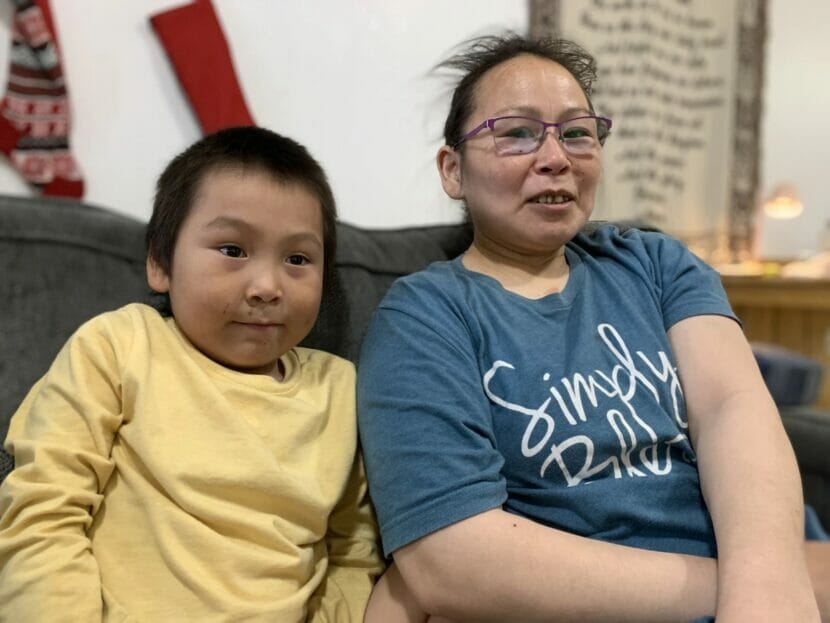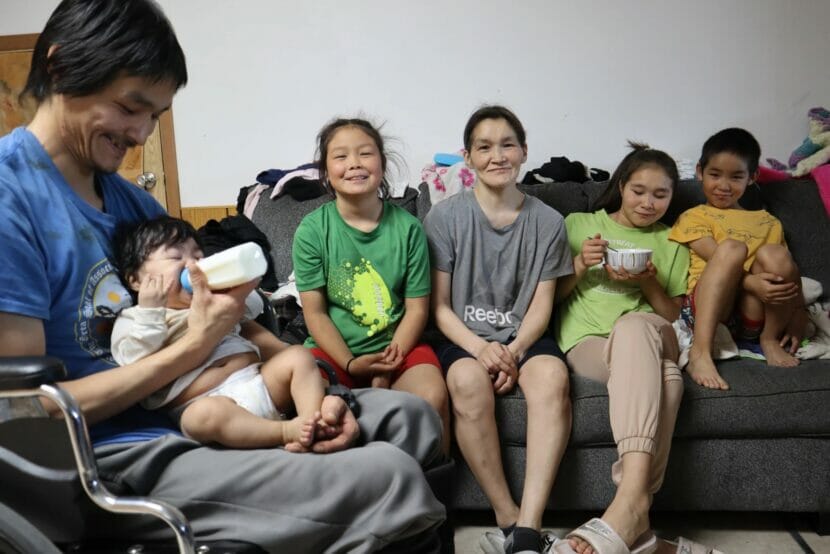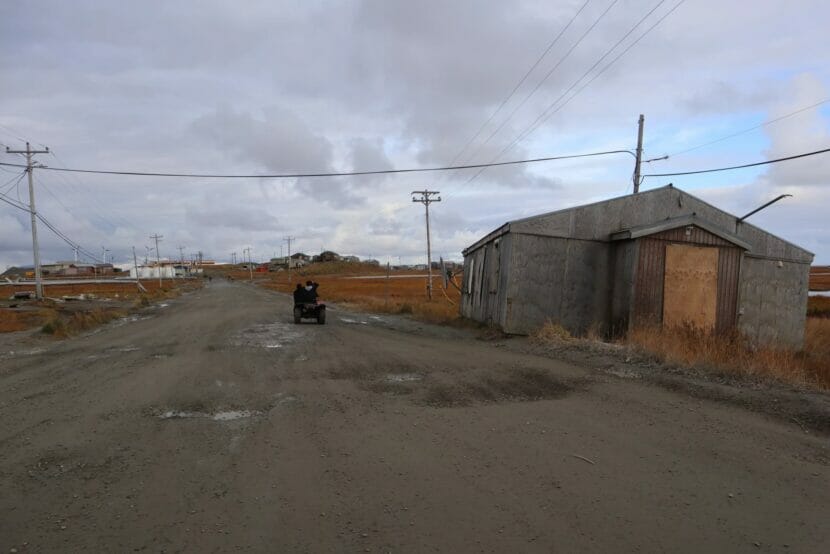Loretta Smith has gotten three letters from the Association of Village Council Presidents Regional Housing Authority, her landlord. She only has one of them, though. The others she said that she tossed out.
“I was trying to keep all of it for my records, you know. I threw the other ones away because I was like, ‘Ugh, forget these guys,’” Smith said.
Smith lives in one of more than a dozen apartments set up as low-income housing in Hooper Bay. The floor is spotless, the furniture is sparse: there’s a small couch, a table and chairs in the kitchen, and another table with a television against one wall. A blanket with the Lord’s Prayer woven in brown cursive letters hangs on another.
Smith moved here with her 5-year-old son, Jackson, about a year ago after their home was damaged by Typhoon Merbok in 2022.
“It couldn’t be fixed or anything,” Smith said. “It belonged to my great-grandpa. And it’s pretty old. So, you know, it was probably already in a rotting state. It got flooded. The porch collapsed.”

Smith’s family is one of three who lost their homes and most of their possessions during the storm last year. Two of those families, including Smith’s, are still trying to find a permanent solution.
Smith didn’t own her house, so she only qualified for rental assistance from the Federal Emergency Management Agency. She said that she received between $3,000 and $4,000. A letter from FEMA dated Oct. 22, 2022 confirms that. But it also says that the agency expects her to either return to her old home or find other long-term housing as soon as possible.
It’s unclear what FEMA means by long-term housing.
Smith’s placement in the Regional Housing Authority apartment complex was granted on a temporary emergency basis, but she said that she can’t stay after Oct. 31.
“Where do they expect us to go with no place to live?” Smith said. “This is pretty frustrating, you know, with the lack of housing here, especially for my son. If I have no choice, I’ll probably ask to live with some relatives.”
Smith was careful with her words as she tried to explain why her options were limited.
“Living in the women’s shelters and living with relatives. Nah. I just want to be in my own space with my son. You know where we, because I’m a sober person,” Smith said. Memories of her past living situations brought her to tears.
Smith isn’t the only resident in Hooper Bay who was displaced by last year’s storm. And hers isn’t the only family that could be without housing by the end of the month.
Martin Joe, his wife Lois and eight children ranging in age from 1 to 18 live right next door. They share a wall with Smith.
“I’d rather have my old house back,” said Joe. “Everybody misses it.”

Joe said that it was easier on his kids. They had more space to play and run around, and they could be loud in a house. Here in the apartment they have to stay quiet and go to bed early.
But their old house is unlivable. The storm surge lifted it from the foundation, spun it around and dropped it along the side of one of Hooper Bay’s main roads. It has been sitting there, wedged up against a power pole, ever since. The family has to see it every time they drive to the store.
“I’ve been in there and it’s real moldy,” Joe said. “Walls are getting all warped and everything. It’s real bad mold. And right when you go in there, you just smell the mold right away.”
The house used to belong to Joe’s grandfather, who gave it to him. Because he owned the home, it’s unclear why FEMA didn’t provide assistance to rebuild it. Joe said that FEMA gave his family $50,000. That money has been spent on new clothes for their kids, a new couch and two new beds. It has also covered their rent and utility bills, and kept this family of 10 fed for the last year.
An accident this summer left Joe with two broken feet, so he is unable to work. He said that he has been told that he doesn’t qualify for disability benefits.
Lois, Joe’s wife, works two to three times a week selling pull tabs for the Hooper Bay tribe.
“I keep wondering where we’re going to stay, what we’re going to do and how we are going to do this,” Lois said. Although she’s happy around her children, she also said that she’s exhausted. Joe said that they’ve had a lot of sleepless nights in the last year.
Rental housing in Hooper Bay is severely limited. Both Smith and the Joe family have requested extensions to stay in their apartments. Smith recently received a call from the Regional Housing Authority. It denied her request.
The regional housing authority has not yet responded to emails or phone calls for more information.
This reporting was supported by a grant from the Center for Rural Strategies and from the nonprofit media organization Grist.






